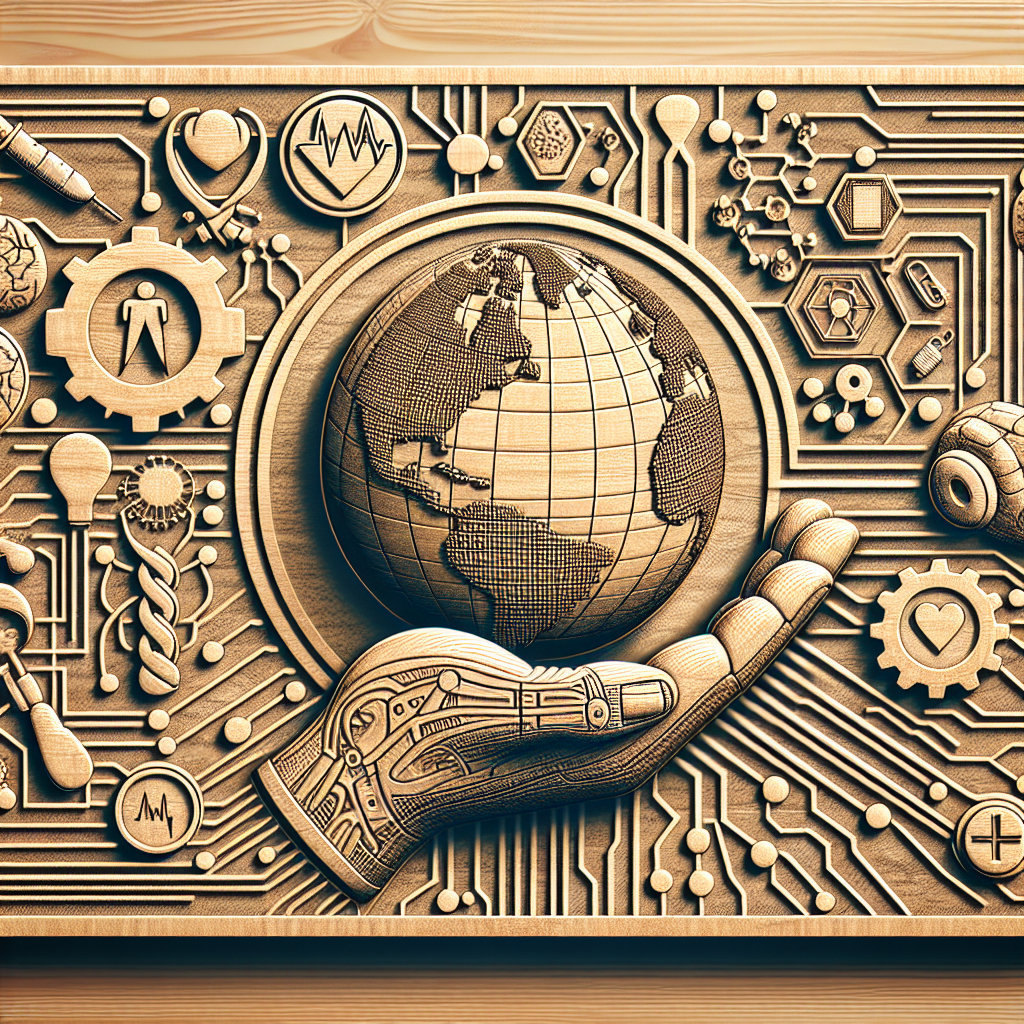In recent years, artificial intelligence (AI) has been revolutionizing the global health governance landscape. From improving patient care and treatment outcomes to enhancing disease surveillance and response capabilities, AI automation is transforming the way healthcare organizations and governments manage public health crises and deliver quality care to populations around the world.
AI automation in global health governance refers to the use of AI technologies and algorithms to streamline and optimize various healthcare processes, including data collection and analysis, decision-making, resource allocation, and more. By harnessing the power of AI, healthcare organizations and governments are able to make more informed and data-driven decisions, improve efficiency and effectiveness of health systems, and ultimately, enhance the health and well-being of individuals and communities.
There are several ways in which AI automation is revolutionizing global health governance:
1. Disease surveillance and response: AI technologies are being used to monitor and track the spread of infectious diseases in real-time, allowing healthcare organizations and governments to respond quickly and effectively to outbreaks. For example, AI-powered predictive modeling can help identify high-risk areas for disease transmission, while natural language processing (NLP) can analyze social media trends to detect early signs of potential outbreaks.
2. Personalized medicine: AI algorithms are being used to analyze large datasets of patient information, including genetic and environmental factors, to develop personalized treatment plans for individuals. This allows healthcare providers to deliver more targeted and effective care, leading to better treatment outcomes and reduced healthcare costs.
3. Remote patient monitoring: AI automation enables remote monitoring of patients’ vital signs and health data, allowing healthcare providers to track patients’ progress and intervene when necessary. This is particularly beneficial for patients with chronic conditions or those living in remote areas, as it allows for more frequent and efficient healthcare interventions.
4. Drug discovery and development: AI technologies are being used to accelerate the drug discovery and development process, from identifying potential drug candidates to optimizing clinical trials. By leveraging AI automation, pharmaceutical companies can reduce the time and cost of bringing new drugs to market, ultimately improving patient access to life-saving medications.
5. Health policy and decision-making: AI algorithms can analyze large datasets of health information to identify trends, patterns, and correlations that can inform health policy decisions. This allows governments and healthcare organizations to make evidence-based decisions, allocate resources more efficiently, and improve the overall quality of healthcare services.
In addition to these benefits, AI automation in global health governance also raises important ethical, legal, and social implications. Issues such as data privacy and security, algorithm bias, and the potential for job displacement are all considerations that must be addressed as AI continues to transform the healthcare industry.
Frequently Asked Questions (FAQs):
Q: What are some examples of AI technologies being used in global health governance?
A: Some examples of AI technologies being used in global health governance include machine learning algorithms for disease surveillance, predictive modeling for outbreak detection, natural language processing for social media analysis, and personalized medicine for treatment planning.
Q: How is AI automation improving patient care and treatment outcomes?
A: AI automation is improving patient care and treatment outcomes by enabling healthcare providers to deliver more personalized and targeted care, monitor patients remotely, and accelerate the drug discovery and development process.
Q: What are some of the ethical considerations related to AI automation in global health governance?
A: Some of the ethical considerations related to AI automation in global health governance include data privacy and security, algorithm bias, and the potential for job displacement. It is important for healthcare organizations and governments to address these issues to ensure the responsible and ethical use of AI technologies.
Q: How can governments and healthcare organizations leverage AI automation to improve public health?
A: Governments and healthcare organizations can leverage AI automation to improve public health by using AI technologies for disease surveillance and response, personalized medicine, remote patient monitoring, drug discovery and development, and health policy decision-making.
In conclusion, AI automation is revolutionizing global health governance by improving patient care and treatment outcomes, enhancing disease surveillance and response capabilities, accelerating drug discovery and development, and informing health policy decisions. While the use of AI technologies in healthcare presents tremendous opportunities for improving public health, it is important for governments and healthcare organizations to address ethical, legal, and social implications to ensure the responsible and ethical use of AI automation in global health governance.

